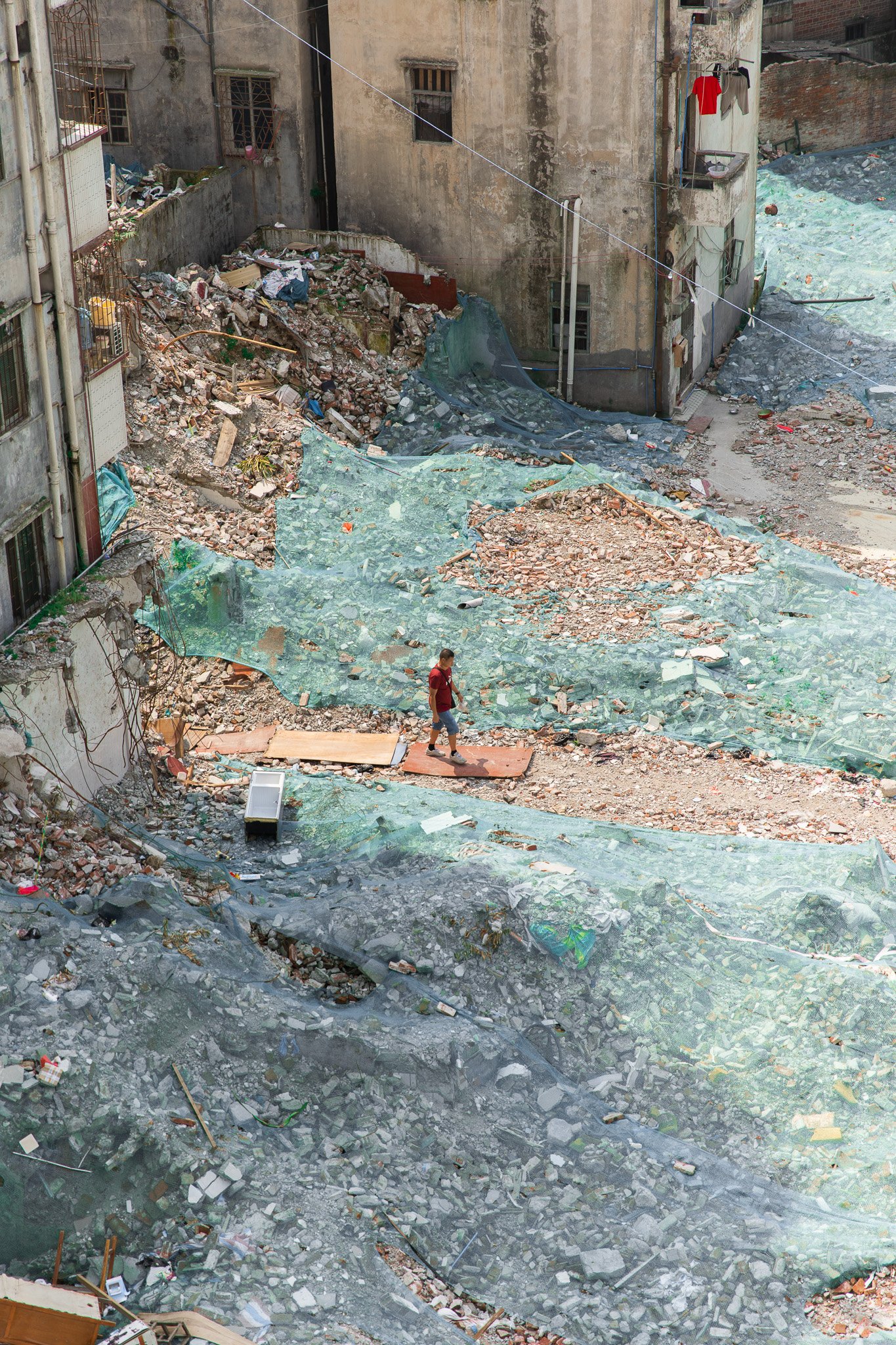Ghost in the Shell
Ghost in the Shell (2019)
In modern China, urbanization has resulted in rapid development, turning old settlements into wealthy and modern urban centers.
The tall buildings behind Xian Cun are the “better and newer homes” the government built for the relocation in Zhujiang New Town. The remaining villagers who refuse to relocate still live inside the demolished buildings, along with the homeless. They put red flags on the building to protest that these are their home, their territories.
After the demolition, the remaining villagers are highly alert and violent to any strangers wandering through the gate.
Xian Cun, one of the most notorious old villages still visible in Guangzhou's city center today, is shadowed by the high rises of Guangzhou's most modern district Zhujiang New Town. Zhujiang New Town is planned as the city's new Central Business District.
This ancestral hall of Xian Cun has over 258 years of history, but still can’t survive through urbanization.
A tree grows through the crack in the floor, flourishing.
And yet, the 2010 Asian Games in Guangzhou has hastened the pace of transformation, putting Xian Cun residents in the line of fire. Despite numerous attempts, an agreement on land development and compensation has never been reached between authorities and the local villagers.
Over the past decade, the village has been under violent demolition, with dozens of buildings crumbling into mountains of rubble. Hundreds of villagers who stood up against the authorities were arrested and a long stalemate began.
Grandpa Bai sits in his room. The room is 120 square feet with one bed, one shelf, one chair, one lightbulb, and one small table. The rent is 300 yuan, less than 50 dollars a month.
He has been living here illegally for two years. He immigrated to Guangzhou for a better life. He spends half of his government financial aid on rent and cheap food and donates the other half to an impoverished elementary student.
Some of the remaining residents grow their own food on their balconies to avoid going outside and risking arrest. Many refuse relocation because they are too impoverished to afford the rent of newer homes, even with the government allowance.
One of the many apartments that is left behind stands empty.
A resident leaves his home.
The Chinese character Fu (福) meaning "fortune" is still hanging on the wall during the Chinese New Year. I couldn’t stop picturing the family that lived here once before, having a joyful meal on the Chinese New Year.
Today, the village is a final testament to the Xian Cun that once was. Xian Cun is a ghostly shell of a community. This impoverished neighborhood carries on, struggling for its last breath, yet being forgotten.
A child on his way home as he walks through the ocean of the construction mesh.











